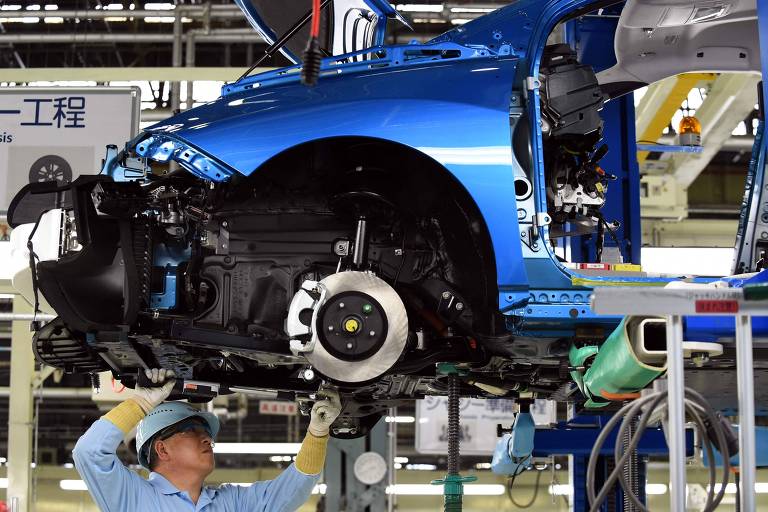A completely silent car, powered by electricity, capable of traveling almost 600 kilometers without needing to refuel, and which releases water vapor through the exhaust pipe.
This is the Toyota Mirai, a vehicle that was loaned for testing a pilot project by the University of São Paulo, which will produce the world's first ethanol-based green hydrogen.
Mirai means "future" in Japanese, but, despite being suggestive, the choice of car has nothing to do with the name, but with the fact that it is one of the only models equipped with fuel cells, which transform hydrogen into electricity.
At the moment, the car is fueled with regular hydrogen. The first rounds with the ethanol-based product should only take place in mid-2024 when the pilot plant —under construction— will be able to produce the first kilograms of the sustainable fuel.
Green hydrogen gets its name because it is made from renewable sources, unlike the common version that has fossil origins, mainly natural gas.
Currently, the most used production method is by breaking down the water molecule using solar or wind energy. The objective of the USP pilot project is to develop a new form, using ethanol as a source.
Green hydrogen has gained centrality in the climate debate due to its potential to decarbonize sectors such as transport, steel, the chemical industry, and electricity generation itself.
However, transporting the fuel is still challenging, as it requires storage to be carried out at low temperatures and high pressure, making logistics difficult and the final product more expensive.
Translated by Cassy Dias
